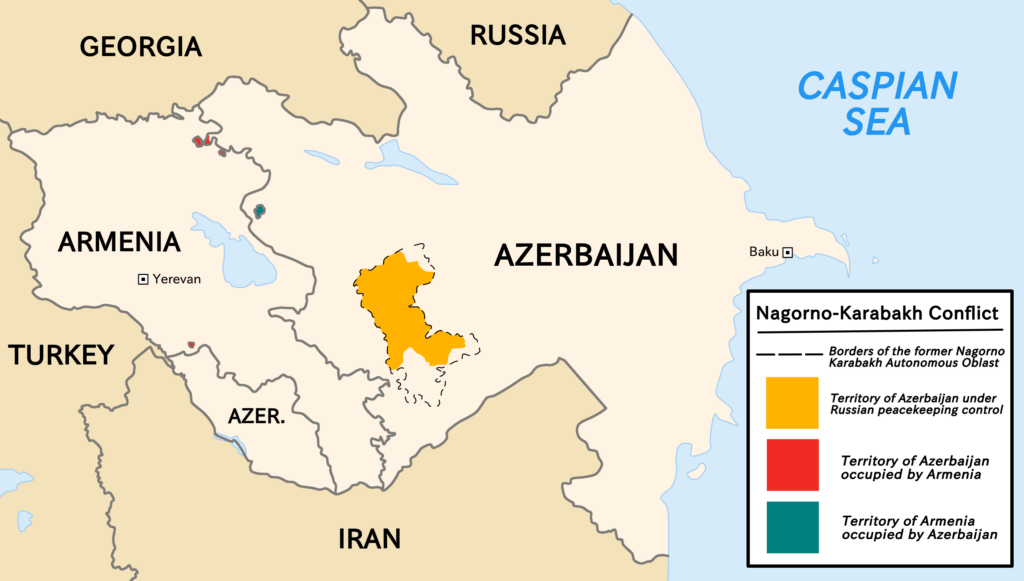The Beginning of the End in Nagorno-Karabakh

The frozen conflict between Armenia and Azerbaijan appears to be over.
Azerbaijan has taken military control of an Armenian enclave inside its territory, after two days of fighting. It’s a potentially decisive development in a conflict that has resulted in two wars since the collapse of the Soviet Union — and it could create thousands of new refugees in areas where hundreds of thousands have already been displaced.
The return of the enclave to Azerbaijani control is likely to alter power dynamics in the South Caucasus, a region that for centuries has been at the crossroad of geopolitical interests of Russia, Turkey and Western nations.
Decades of violence and geopolitical rivalry underpin the dispute between the two former Soviet republics over the enclave of Nagorno-Karabakh, which lies within Azerbaijan’s internationally recognized borders and is home to tens of thousands of ethnic Armenians.
There are legitimate concerns about what the Azeris will choose to do with the Armenia communities in Nagorno-Karabakh, but Armenia has essentially no capacity left to do anything about it.
Artak Beglaryan, a former high-ranking official in the pro-Armenian government, described a dire humanitarian situation, with different parts of the region cut off from one another and the Azerbaijani military blockading internal roads. Electricity supply has been erratic, he said, making it impossible for many residents to charge their phones, and people have been spotted cooking on open fires.
“Another urgent problem is hunger; there is a serious shortage of food,” he said, adding that thousands of people had been displaced and relocated in various communities and Russian peacekeepers’ bases. Russia has acknowledged taking thousands of people into its bases.
The concerns of Armenia and the international community are not without merit. However, the Armenians are not without fault here. The demands of the Armenian state, the Nagorno-Karabakh government, and the Armenian diaspora made for an extremely toxic political stew that made it difficult-to-impossible to come to a diplomatic accommodation with Baku while Armenia held the military advantage. Over the last decade Armenia dithered while Azerbaijan steadily (and quite publicly) closed the military gap, to the point in 2020 when the latter was able to rapidly and decisively defeat Armenian forces. The unwillingness or inability of Russia to come to Armenia’s aid in support of the peace agreement it brokered in 2020 has made the conclusion academic. Nor is it obvious that the war is over; some suspect that Azerbaijan might press its advantage and try to create a land bridge to Nakhchivan. I’m not sure that the Armenians can do anything useful to stop them if it comes to that.


